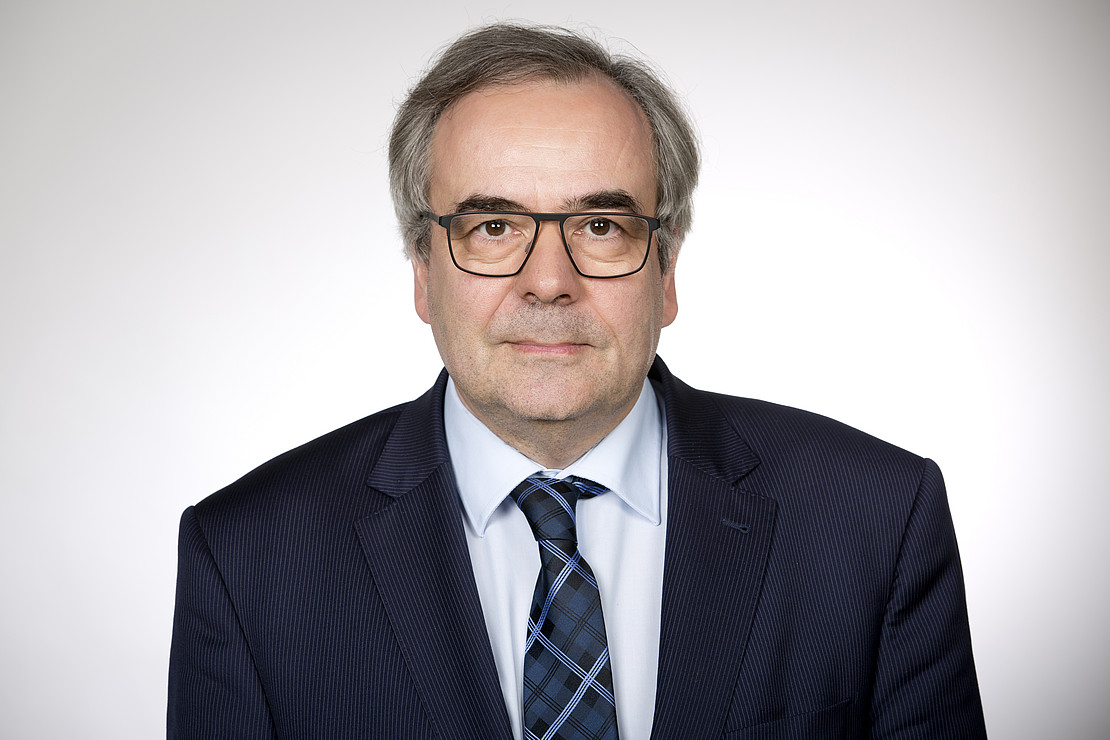The content on this page was translated automatically.
Special Newsletter of the President of the University of Kassel - Excerpt
 Image: Sonja Rode
Image: Sonja RodeIn this way - and this is the second aspect that is essential for our actions - we are making a small but at the same time important contribution to containing the pandemic and slowing down the pace of infection. Thirdly, we want to continue to carry out our important tasks as best we can at this stage - we are working in a basic mode. Teaching in this summer semester will start slightly late and initially digitally on April 20. Research will also continue, despite all the restrictions. Finally, beyond social distancing and adherence to hygiene measures, we see it as our duty to make contributions to overcoming the crisis. With respect to this fourth goal, we are currently somewhat less challenged than universities with medical departments and strong virology. However, we will also make our contributions now and even after the restrictions on daily life have been relaxed.
We are now striving to bring the four goals mentioned into line with a cleverly balanced set of measures. To give just one example: Digital study offerings serve to keep teaching completely free of health risks. "We are currently driving on sight" may be one of the most frequently used phrases at present. However, given the great uncertainties about future developments, it does describe well how we are acting: We are monitoring developments very closely and are always ready to adapt our actions to new situations.
Last Friday, April 3, the Standing Conference of the Ministers of Education and Cultural Affairs of the Länder in the Federal Republic of Germany(KMK) has now laid down basic rules for the summer semester 2020(www.kmk.org), and over the weekend, Minister Dorn reached an agreement with the presidents of the universities in Hesse on the basic approach to teaching in this unusual semester in our state(www.wissenschaft.hessen.de). The key points are that, as we have been planning for some time, the semester should take place, that as comprehensive a range of courses as possible should initially be offered digitally and later also as face-to-face teaching, and that for this reason the possibility should be opened up of holding courses even after the end of the initially planned lecture period, i.e. after July 17. In all likelihood, lectures in the coming winter semester will start at the beginning of November. The regulations of the state of Hesse regarding the contact ban remain decisive for us for a possible gradual resumption of teaching and examination operations in attendance after April 20.
Very importantly, students should be offered as many courses as possible, but they should not suffer any disadvantages if they are unable to take advantage of these offers, or only in part. Even before these stipulations, the Senate of the University of Kassel decided in a special meeting held as a video conference that the responsible examination committees of the departments could open up the possibility for oral examinations in digital formats and pointed out ways in which deadlines for qualification theses could be made more flexible. It is clear to me that even after these fundamental determinations, many questions from teachers and students remain unanswered. We will continue to deal with them intensively and work on good solutions together with the HMWK, the other Hessian universities and you. So please continue to visit our website regularly!
In any case, Kassel's teachers have done an outstanding job in recent weeks in offering our students online teaching in a wide variety of formats - for which I would like to express my sincere thanks. I would also like to take this opportunity to thank you for your flexibility and motivation in accepting the many challenges you have faced so far. You use digital work tools in your home offices, while other colleagues keep operations running here on site and safeguard important infrastructures. I am sure that together we will continue to make our contributions to overcoming the crisis. Professor Heinz Bude's reflections on the future of solidarity may help one or two of you in this respect! ("Will experience a return of the state" Sociologist Heinz Bude in conversation with Christoph Heinemann, Deutschlandfunk 27.03.2020, www.deutschlandfunk.de)
Students who have seen their earning potential eroded must now be helped quickly. My predecessor in office, Prof. Dr. Dieter Postlep, is currently working intensively as president of the German Student Union together with other academic organizations to find effective and unbureaucratic solutions for the many students this affects. We strongly support this.
International students are often hit particularly hard. Far from home, they rely on social contacts that we now have to deny them. They came to us with high expectations of a good study time, which will now not be fulfilled for the time being. I regret this very much. We should be very aware, especially now, of what a valuable asset diversity is at our university, and do everything we can to get through the crisis well together with our international students. We are also trying to find solutions for the academic staff and employees, LfbAs, PhD students, scientists in temporary research projects and other employees who are facing particular problems due to the conditions of the Corona pandemic. The most important German funding organizations are also working out new regulations in this regard.
[...]
So be lenient and considerate, not only at work - these times need it. And: stay healthy!
Yours
Prof. Dr. Reiner Finkeldey
President